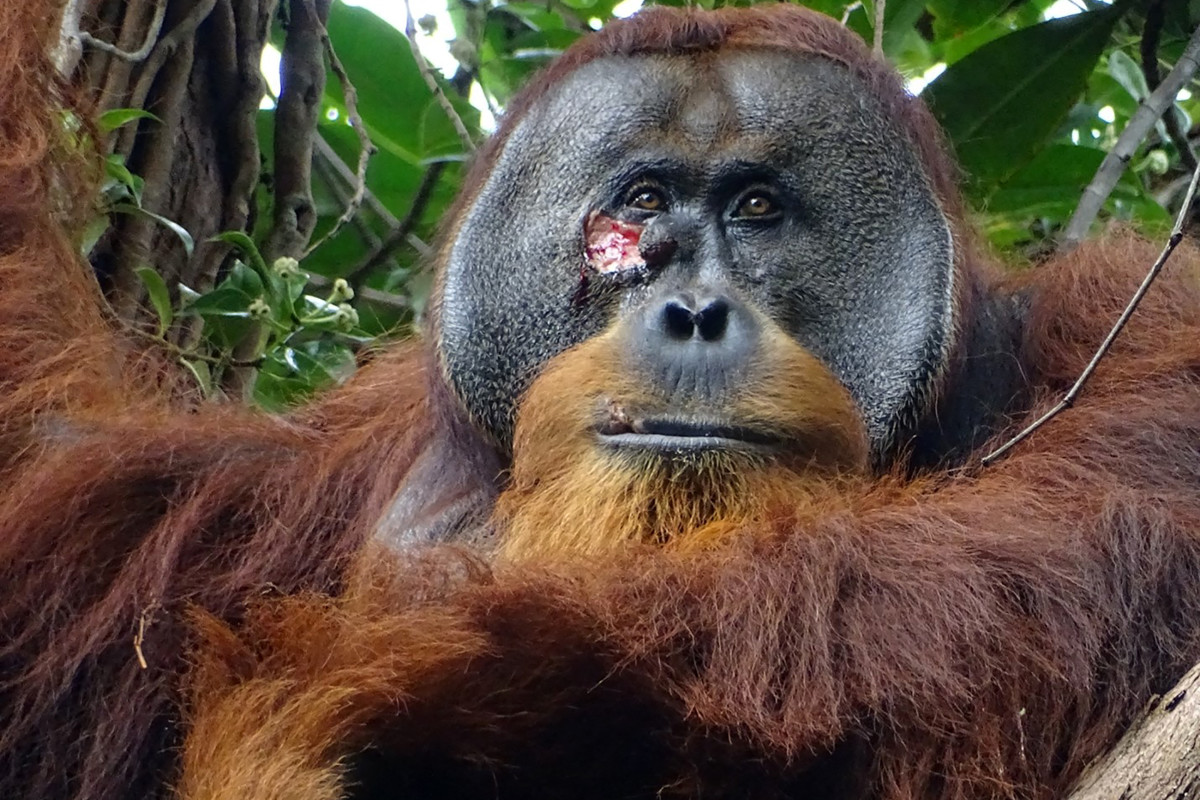No products in the cart.
Fitness Tips
Orangutan Seen Emulating This Human-Like Behavior for First Time

As our closest non-human relatives, primates remain some of the smartest creatures in the animal kingdom. And they continue to surprise science with their knowledge. A new research paper published in Nature journal shows just how resourceful one orangutan in Indonesia is.
Scientists have been observing a male Sumatran orangutan named Rakus in Indonesia’s Gunung Leuser National Park since 2009. In June 2022, they noticed he had a facial wound. But what happened over the next few weeks surprised them; they observed him treating his wounds as they continued to heal.
According to the researchers, Rakus used some leaves from a fibraurea tinctoria vine, locally known as akar kuning, to help the wound heal. He was seen chewing on them for about half an hour, then he applied some of the juice onto the would. He repeated the process over the course of seven minutes, and after he was done, he applied more solid plant material on the wound, presumably to help set it.
In the following days, Rakus continued to munch on akar kuning and spent more time resting than usual, spending about half of the time asleep. During that time, the wound didn’t appear to get infected, and it had healed entirely just a few days later. After two months, it was practically unnoticeable.
“We rarely observe injured orangutans,” study lead author Isabelle Laumer told STAT. “This is so special because so far, at least to our knowledge, there was no wild animal observed treating his or her wounds with a medically active plant.” It’s not the first time animals have been seen healing themselves, with orangutans’ chimpanzee relatives eating specific leaves to get rid of intestinal parasites and applying flies to wounds.
“Humans show active wound treatment, and now we also found it in the African and also the Asian great apes,” Laumer said. “It’s also possible that our last common ancestor already showed similar forms of ointment behavior.”
More research needs to be done to confirm orangutans’ exact knowledge of their actions, but the findings are exciting for scientists interested in exploring our possible mental connections with primates.
“It’s always so fascinating to find behaviors that are so almost human-like,” Laumer said. “We’re much more similar than we are different.”
Source link

